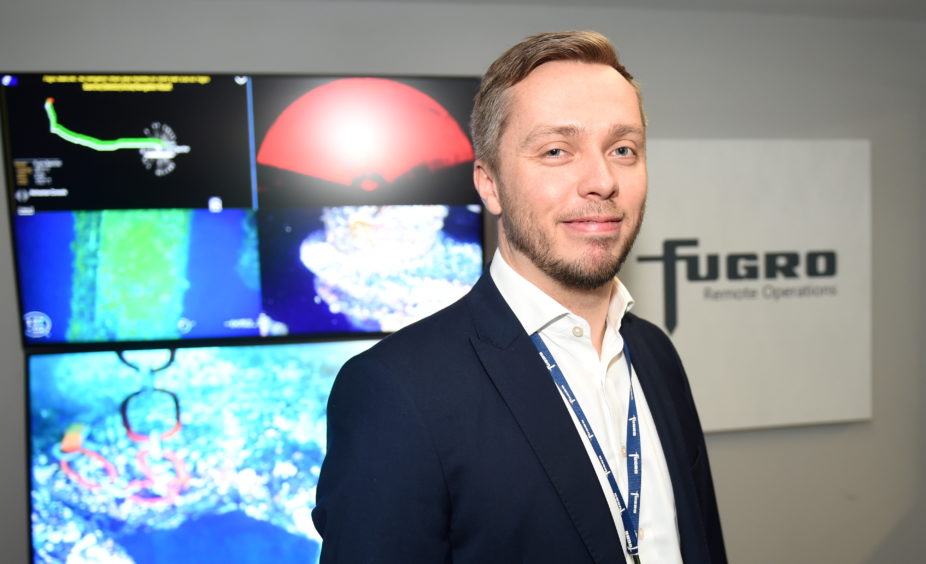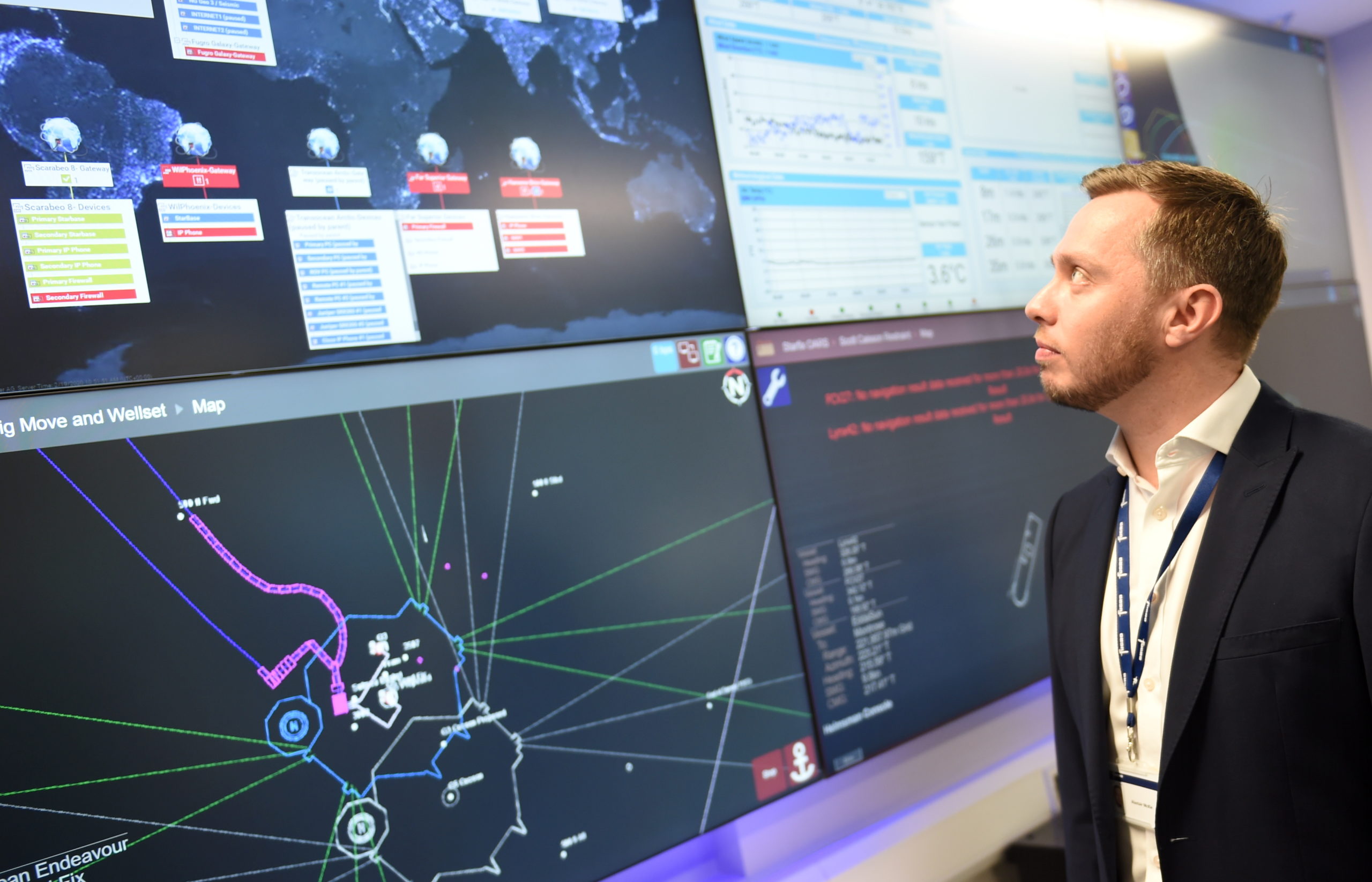
Aberdeen is at the heart of a global geo-data service firm’s major pivot towards remote and autonomous operations.
Fugro has created a futuristic operations and service centre at its base in Bridge of Don, enhancing its ability to execute projects remotely.
The Dutch company has been permanently relocating offshore staff members to the centre, while also carrying out a recruitment drive.
In the last year, Fugro’s north-east contingent has grown by about 50 to 650, said Alastair McKie, director of remote operations, Europe and Africa.
He said Aberdeen had the “full attention” of chief executive Mark Heine.
Fugro stressed its Granite City operations and the ability to control remotely-operate vehicles (ROVs) from shore was of “key importance” to its “vision”.
New technologies are coming together and being tested in Aberdeen. Working with local partners, the firm is developing the next generation of robust and maintenance-light ROVs.
Meanwhile, riskier launch and recovery operations are being automated and enabled for shore-based control.
Aberdeen is the testbed – if a programme or initiative is proven there, it can be rolled out across the Fugro group, which has 10,000 employees working across 61 countries.
The new centre brings several remote services, including survey, data processing, inspection and piloting, under one roof to improve efficiency and resource sharing.
The benefits of remote operations are clear to Fugro, from efficiency, cost, safety and environmental standpoints.
Writing at a time when the country is in lockdown amid the deadly coronavirus outbreak, remote operations sound all the more attractive and relevant.
McKie said: “If we can remove people from the offshore environment and put them in a controlled onshore environment, then that’s better. You’re not on a helicopter, you’re not flying.
“Also, like Fugro, all companies are talking about carbon reductions and the energy transition. This is an easy way to achieve reductions in companies’ carbon footprints.”
The advancement of remote technology also enables faster data gathering and delivery, which can reduce vessel deployment times.
And Fugro doesn’t want to simply hand that data to someone else, it is using analytics to provide clients with advice based on that data.
McKie said: “If we can cut the time to data delivery we can reduce costs offshore and clients can make better business decisions.
“We operate vessels from this office. We used to have to wait for vessels to come ashore to get data. Now a lot of it comes ashore live. The data comes straight back.”
He said the remote operations centre was “built with people in mind”.
“If we can use people in a more efficient way then that’s good,” McKie said.
“You can send people offshore for four weeks but they might only work for one of those because of the weather and the way the vessel is used.
“We have full control of the circumstances here.”
In essence, if a person’s job is to look at a screen, and only look at a screen, then they should be doing it from shore.
That is McKie’s mantra. His logic is sound, but that doesn’t mean the process of transferring offshore workers to an office is easy.
McKie said the technology required already exists and can be wielded by anyone who’s got the money.
“Human change” is the biggest challenge, he said. Workers, and the industry at large, are used to doing things in a certain way – they’re creatures of habit.
McKie was “amazed” by the amount of people who still wanted to go offshore when presented with the chance to work in the more sedate environs of an office onshore.
“Some staff members still wanted to go on the boat, but in the end they said working in the remote operations centre was better,” he said.
“I worked offshore for 10 years and loved it. I thought I would hate being in the office, but now I prefer it.”
To help workers acclimatise, Fugro has started developing training courses aimed at upskilling and preparing employees for the challenges posed by “non-traditional methods of operation”.
McKie said companies “can’t just do things the way they’ve always done them”.
He also insisted the new approach didn’t mean redundancies were inevitable.
“We’re not removing jobs,” he said. “We need more people to do what we want to do. We just need them in different places.
“We want to do as much as we can onshore. That doesn’t mean the jobs that were offshore are gone. They’re moved onshore.
“We still need people to launch and recover equipment, but as the technology develops we will need fewer people offshore.
“The people we employ in five years will have very different backgrounds.
“ROV pilots will be needed to fly the vehicle, but they won’t need to know how to fix it. The vehicles will be more reliable.”
Asked why Fugro chose Aberdeen as the location for the operations centre over other, cheaper cities, McKie said: “This is not a call centre. It’s a place where our experts can work in the most efficient manner.
“Aberdeen is important because it’s close to our clients and local knowledge base.
“The history of Aberdeen means it’s a great place for this programme.”
Recommended for you


